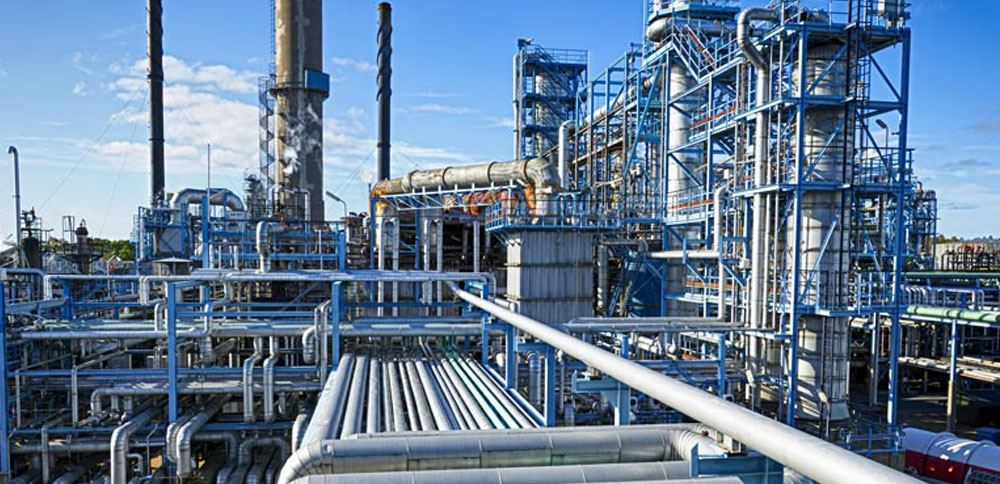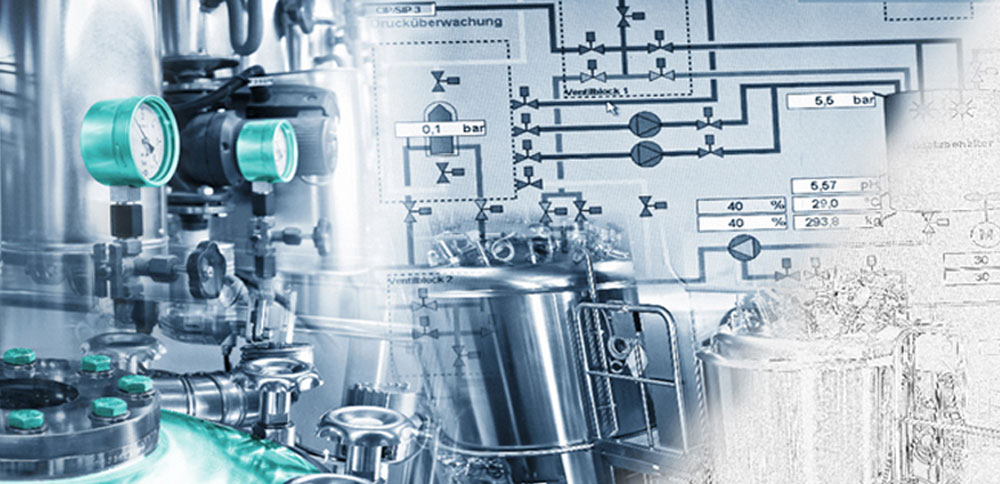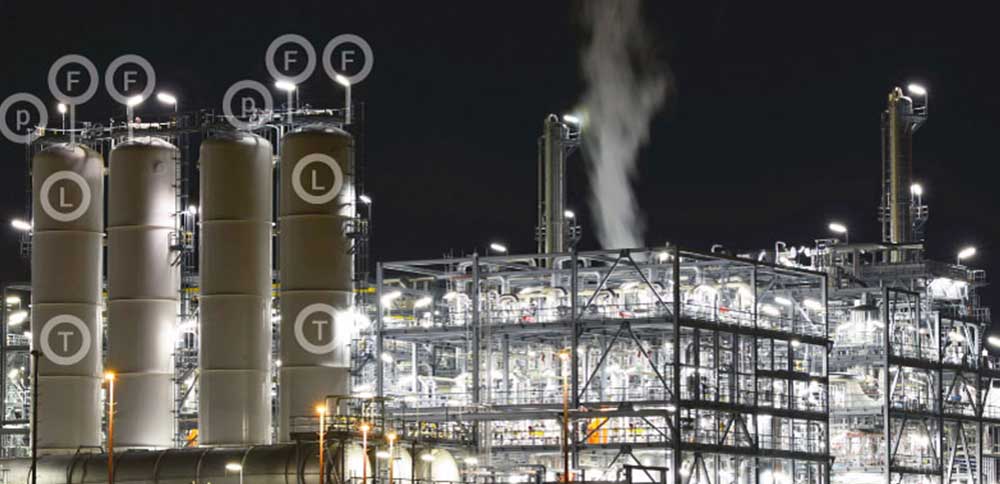STUDENTS AT THE CSE INSTITUTE
Student theses
Recent bachelor’s and master’s theses in the field of process and plant safety at the CSE Institute. If you have any questions about other projects at CSE, please do not hesitate to contact us. Many research projects have not yet been specifically advertised – it is always worth calling +49 721 6699 4780 or sending an e-mail if you are interested.
Current Bachelor and Master theses:
BACHELOR/MASTER THESES | “MetA HAZOP” Project
Hazard and impact analysis of process plants using artificial intelligence methods
HAZOP studies automatically. This can reduce time, personnel and cost costs as well as subjective influences. The task of this project/thesis is to develop a knowledge-based system for the automated hazard and impact analysis of process plants using artificial intelligence methods.
Work Steps:
- Familiarization with the risk and impact analysis of process plants and existing approaches to automation
- Development of knowledge models and knowledge databases based on component HAZOPs, process specifics and safety-related know-how
- Development and implementation of an expert system for the automated evaluation of the knowledge databases created
- Application of the developed methodology e.g. on a chemical reactor or a storage tank
- Comparison and evaluation of the results with a classically created expert HAZOP
Research topic: Modelling | AI
Processing time: 6 Months
nformationen on the project here: open_in_new MetA HAZOP
Supervisor: Prof. Dr.-Ing. Juergen Schmidt
Contact: Marius Baechle, M.Sc.
mail Send email | phone +49 721 6699 4780
MASTER THESES | “sRMC” Project
Development of a CFD acoustic model for gas leakage: a contribution to the sensing capabilities of an AI-based early detection system.
In this work, a CFD acoustic model for gas leakage will be developed to validate sensor data from microphones of an early detection system. The Reynolds Averaged Navier Stokes (RANS) approach or the Large Eddie Simulation (LES) approach will be used. The data generated by the CFD model will be used to generate training data for a deep learning model.
Benefits:
- Getting to know methods and processes through industry-related research
- State-of-the-art hardware for GPU-supported simulation (Nvidia Tesla A-100)
- Opportunity for joint scientific publication
Profile:
- Study of chemical engineering, process engineering or mechanical engineering
- Independent working style, initiative and basic knowledge in flow simulation
Research topic: Data Processing | Data Analysis
Processing time: 6 months
Information on the project here: open_in_new sRMC
Supervisor: Prof. Dr.-Ing. Jens Denecke
Contact: Deniz Quick, M.Sc.
mail Send email | phone +49 721 6699 4780
MASTER THESES | “RiIM” Project
AI-assisted condition modeling of high-pressure gas pipelines.
the scope of this work, an existing industrially used integrity management system is to be extended with the help of AI-supported modeling. For this purpose, a literature research and evaluation of suitable models are to be carried out. The modeling is to be tested according to previously defined requirements and further developed in a well-founded manner.
Working steps:
- Literature review on PIMS, and AI models for gas pipeline condition assessment
- Familiarization with AI modeling
- Determination of requirements for an AI model based on the literature review
- Implementation and development of selected models to improve condition assessment
- Test and validation of the model on literature data
- Comparison to the state of the art condition assessment on an example pipeline
Processing time: 6 months
Information on the project here: open_in_new RiIM
Supervisor: Prof. Dr.-Ing. Jürgen Schmidt
Contact: Tim Bastek, M.Sc.
mail Send email | phone +49 721 6699 4703
BACHELOR/MASTER THESES | “SmOP” Project
Functional test of an adaptive safety device for process safeguarding on a laboratory reaction
The aim of this work is to plan, carry out and evaluate laboratory experiments to test the adaptive safety device on a laboratory reactor with an example chemical reaction. The experimental results are then to be evaluated and the functionality of an adaptive safety device assessed
Working steps:
- Systematic development of a test plan taking into account the requirements of the adaptive safety device
- Development and simulation of the planned test modes with an appropriate reactor simulation
- Planning and construction of the laboratory plant (mechanics, control, software) and commissioning by means of water drive
- Execution and evaluation of the experiments for the developed experimental program with a real chemical reaction
- Analysis of the evaluation results and comparison with the simulation data
- Evaluation of the functionality of the SmOP
Research topic: Lab experiments
Processing time: 6 Months
Informationen on the project here: open_in_new SmOP
Supervisor: Prof. Dr.-Ing. Jürgen Schmidt
Contact: Carsten Schmidt, M.Sc.
mail Send email | phone +49 721 6699 4780
MASTER THESES | “EuroValve” Project
CFD simulation of real gas effects in a safety relief valve and in its inlet line.
Within the scope of this work, an existing one-dimensional CFD simulation for modeling the safety valve stability during gas flow is to be extended by real gas effects. The inlet line is to be taken into account.
Working steps:
- Literature research on relevant real gas effects in a safety relief valve
- Modeling of the pressure drop in the inlet flow line for real gases
- Extension of the existing simulations with suitable equations of state
- Influence analysis of the length of the inlet line on the safety valve stability during flow with real gases
- Evaluation of simulation results based on measurement data
Processing time: 6 Months
Information on the project here: open_in_new EuroValve
Supervisor: Prof. Dr.-Ing. Jürgen Schmidt
Contact: Gergely Keszthelyi, M.Sc.
mail Send email | phone +49 721 6699 4838
MASTER THESES | “RiIM” Project
Identification of risks from NaTech as a result of climate change on gas pipeline.
In this thesis, the risks for gas pipelines due to the consequences of climate change will be investigated. For this purpose, NaTech scenarios, i.e. threat scenarios for technical facilities such as gas pipelines due to natural hazards such as floods, ground movements, lightning or extreme temperatures, are summarized from historical events. The effects on the mechanical integrity of high-pressure gas pipelines are then calculated.
Working steps:
- Literature research on historical events, NaTech, climate models, and mechanical failure of pipelines
- Identification of hazard scenarios using historical examples
- Modeling of the impact on the high-pressure gas pipeline e.g. mechanical stress due to the uplift of the steel pipeline
- AAnalysis of the probability of occurrence due to influencing factors such as environment, line data and climate development
- Evaluation of the risks of the scenarios in relation to the pipeline, climate development and the environment
Processing time: 6 months
Information on the project here: open_in_new RiIM
Supervisor: Prof. Dr.-Ing. Jürgen Schmidt
Contact: Tim Bastek, M.Sc.
mail Send email | phone +49 721 6699 4703
BACHELOR/MASTER THESES | “SISProof” Project
Development of hybrid virtual sensors in safety-related applications: An evaluation of suitable combinatorics and ML methods
Within the scope of this work, virtual sensors with hybrid model structure are to be developed for the verification of safety-relevant sensors. Combinatorics of rigorous and ML models as well as ML methods are to be evaluated.
Working steps:
- Literature research on combinatorics and ML methods
- Definition of requirements for the operation of soft sensors
- Pre-selection of suitable ML methods
- Preselection of suitable combinatorics of rigorous and ML models
- Development of hybrid models for the verification of safety-relevant sensors based on a stirred tank reactor
- Evaluation of the hybrid models with regard to previously defined requirements
Processing time: 6 Months
Information on the project here: open_in_new SISProof
Supervisor: Prof. Dr.-Ing. Jürgen Schmidt
Contact: Kevin Schülein, M.Sc.
mail Send email | phone +49 721 4706 8124






